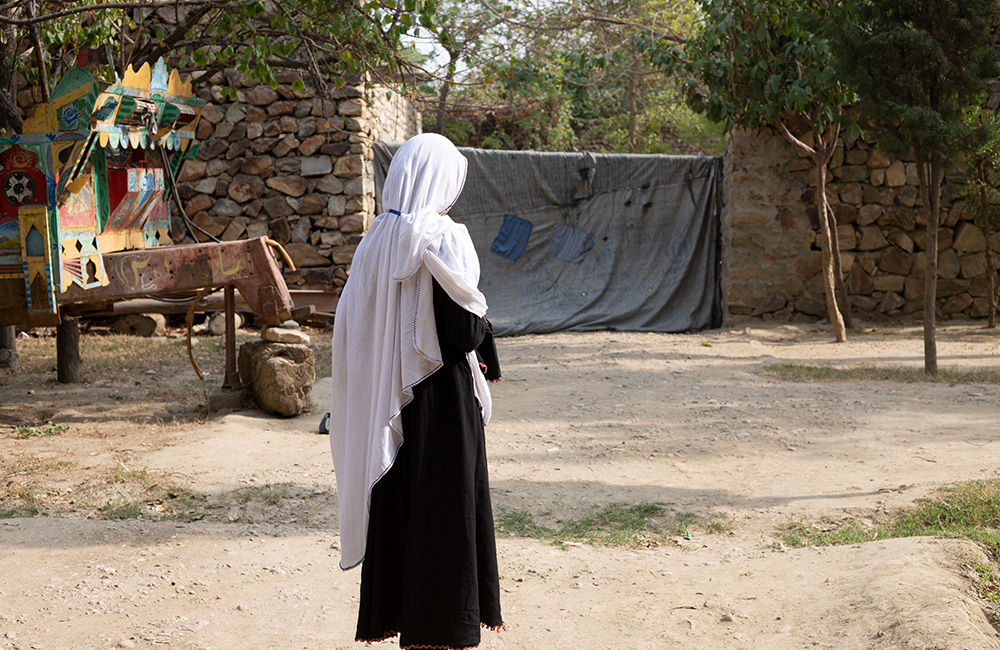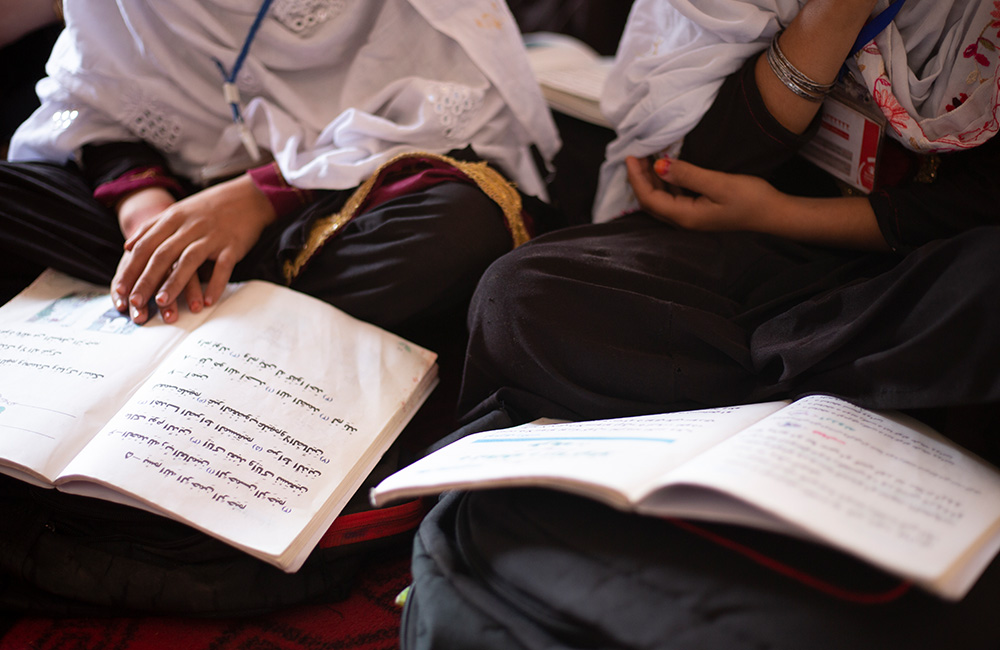Wagma’s path to education in Afghanistan
In the rugged terrain of eastern Afghanistan, where girls have limited access to education, nine-year-old Wagma* is determined to learn.
Wagma is only young, but her dreams are as vast as the Afghan sky. “I want to become a doctor in the future and help other girls in my community,” she says.
In Afghanistan, traditions dictate that girls like Wagma shouldn’t attend public school, where male teachers oversee co-ed classrooms. But Wagma yearned to learn. “I had a dream that one day, I could go to school and read the signboards and write lines,” she remembers.

Wagma (9) from Afghanistan always yearned to learn to read and write.
Wagma’s mother, Nazia,* had long wanted her daughters to be educated. “I only studied up to grade three because our school had male teachers and boys. My father and brother did not allow me to continue my education,” she remembers.
“It hurt me a lot that I could not study, but now I try my best for my daughter's education and bright future.”
Safe space for girls to learn
Seeing the determination of girls like Wagma, we established classes for primary-aged girls in her village. Female teachers were hired and trained so the classroom would be a culturally safe and welcoming space.
When Wagma's mother heard about the Community Based Education (CBE) classes from their community elders and her husband, she immediately enrolled Wagma and her sister, Husna,* in the class.
Two years on, Wagma and Husna have found friendship, courage and a sense of purpose at school. They’re not only learning essential subjects like literature and maths, but also gaining life skills that will serve them well in the future.

Wagma and her classmate reading their lessons at Save the Children’s Community-Based Education class.
Wagma says, "I am glad because I learned how to read and write. Also, this class helped me to find my courage and good friends. Before, I was very shy and could not talk to people or in front of adults."